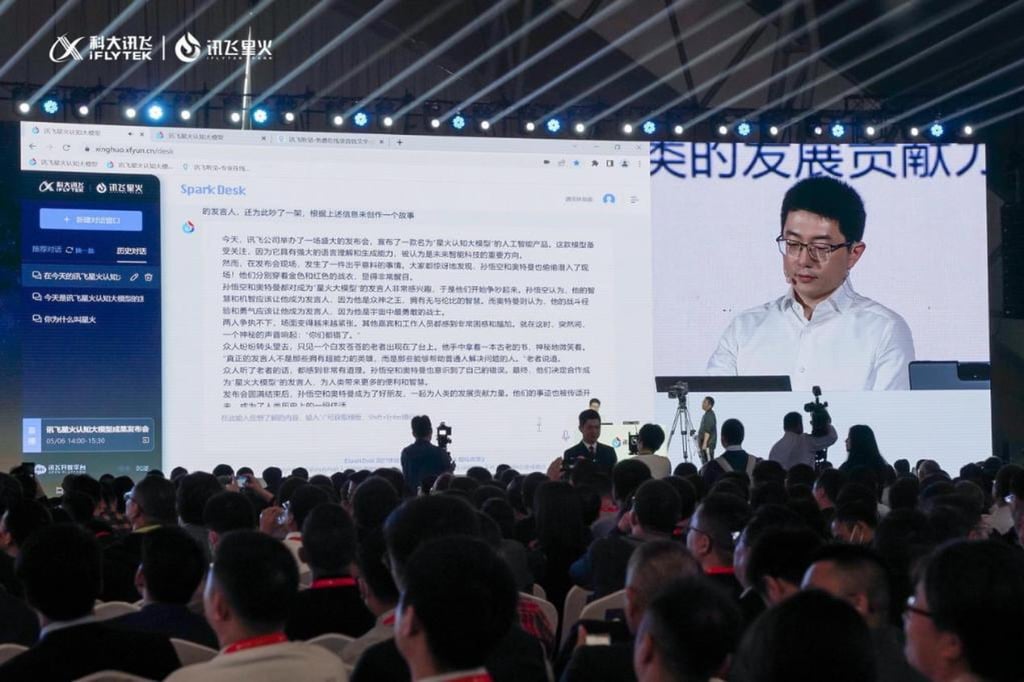Chinese artificial intelligence firm iFlytek blames chatbot-generated article for sudden share price swing on Shenzhen bourse
- A chatbot-generated article about how iFlytek gathers user data for AI research caused an unexpected drop in its Shenzhen-listed shares on Wednesday
- The firm has threatened legal action on those behind the article, but did not make any comment about which Chinese chatbot was used to create it

Shares of iFlyTek, which have risen more than 70 per cent since the start of this year, dropped more than 9 per cent in mid-day trading on Wednesday before closing down 4.26 per cent to 56.57 yuan (US$8.02). On Friday, the company’s shares closed up 1.83 per cent to 56.63 yuan.
In two separate inquiries made via iFlytek’s investor relations website on Wednesday, retail investors suggested that the unexpected price swing was brought about by a widely-circulated online article about how the company illegally collects user information for its AI research. They said the article was later found to be AI-generated.
The company said it agreed with the investors’ finding, but did not make any comment about which Chinese chatbot was used to generate the offending article.

“It’s illegal to use large language models [LLMs] to generate falsehoods, a behaviour that will be punished by law,” an iFlytek representative said. “We will take legal action against any entity or individual who fabricates false information to stigmatise our company.”
The company did not immediately respond to a request for comment on Friday.